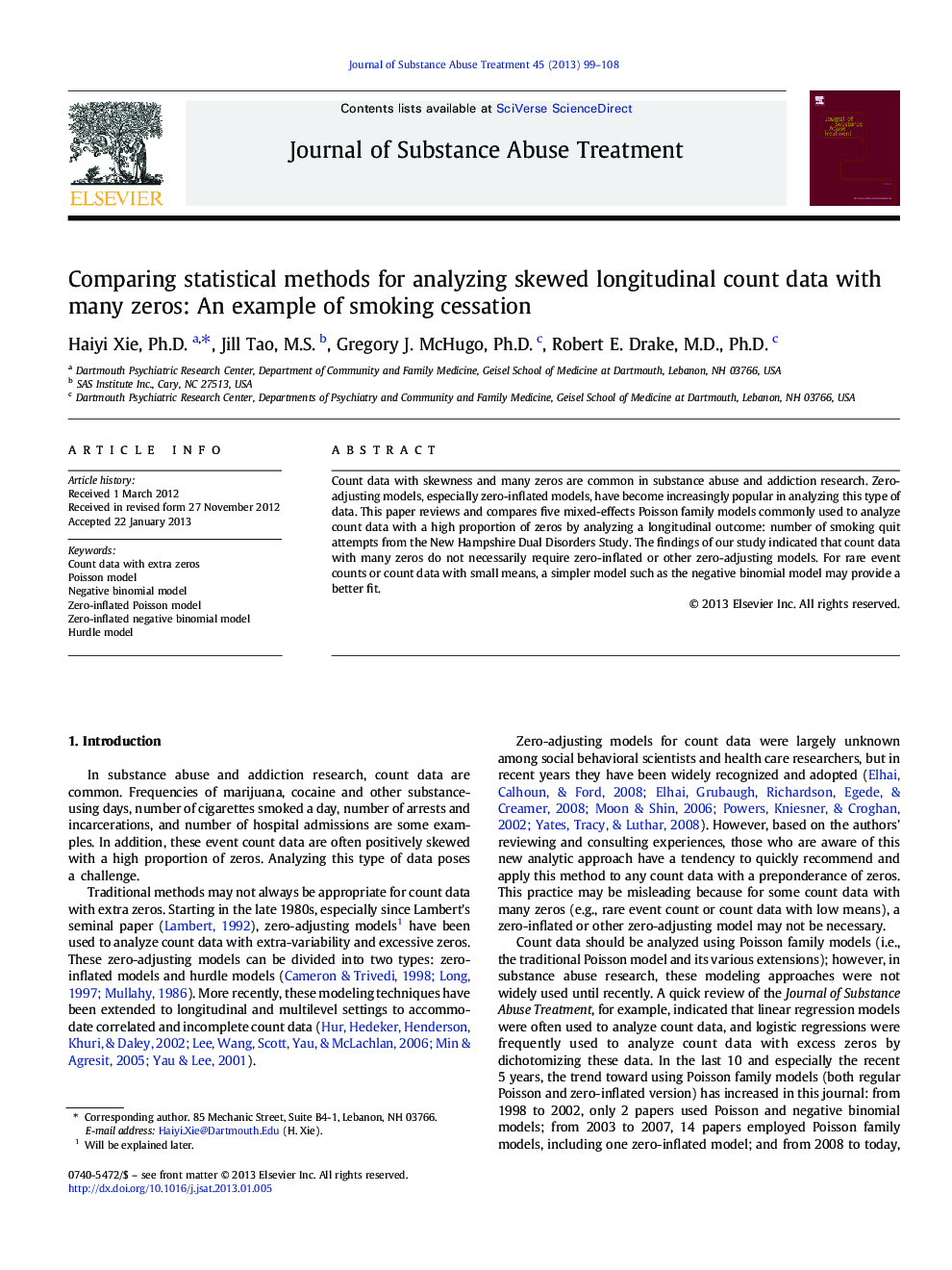| Article ID | Journal | Published Year | Pages | File Type |
|---|---|---|---|---|
| 329745 | Journal of Substance Abuse Treatment | 2013 | 10 Pages |
Abstract
Count data with skewness and many zeros are common in substance abuse and addiction research. Zero-adjusting models, especially zero-inflated models, have become increasingly popular in analyzing this type of data. This paper reviews and compares five mixed-effects Poisson family models commonly used to analyze count data with a high proportion of zeros by analyzing a longitudinal outcome: number of smoking quit attempts from the New Hampshire Dual Disorders Study. The findings of our study indicated that count data with many zeros do not necessarily require zero-inflated or other zero-adjusting models. For rare event counts or count data with small means, a simpler model such as the negative binomial model may provide a better fit.
Keywords
Related Topics
Life Sciences
Neuroscience
Biological Psychiatry
Authors
Haiyi Xie, Jill Tao, Gregory J. McHugo, Robert E. Drake,
